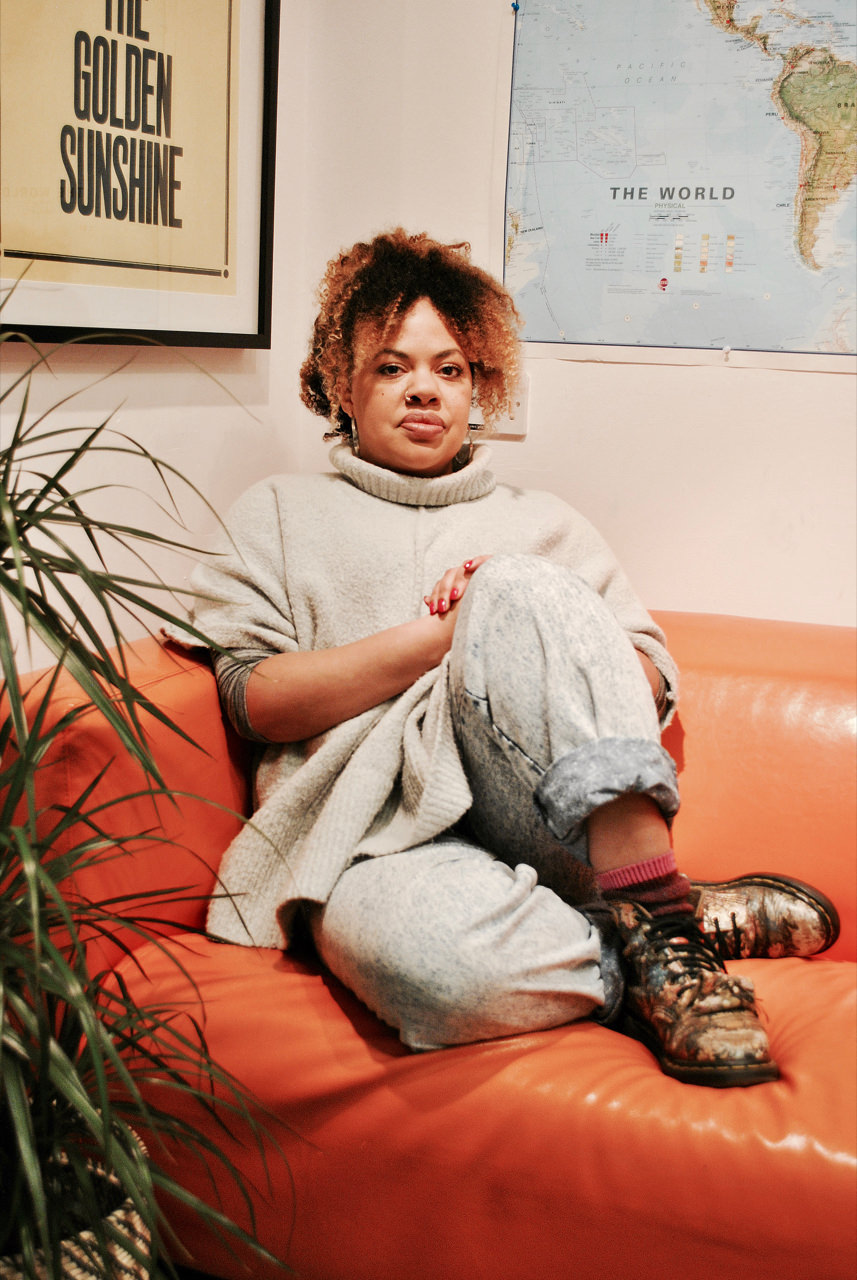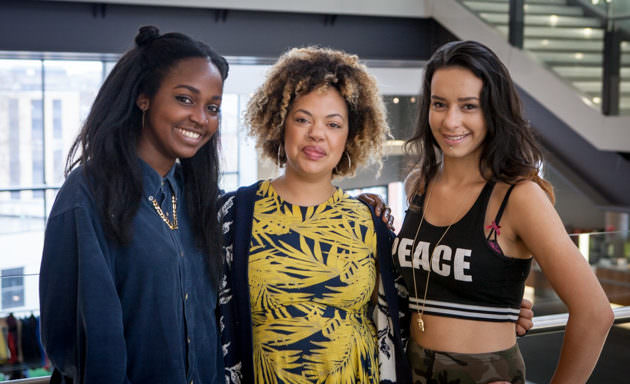For the second of August’s The Business Of Music features, we speak with Laura Lewis Paul, founder and creative director at Saffron, a music tech initiative aiming to redress gender imbalance in the music industry.
The music tech industry is currently composed of around 5% women. Laura Lewis Paul is the head of Saffron, a music tech initiative who want to change this by running music tech education for women, non-binary people and other minority genders. Saffron aim to advance gender equality in the music tech industry using an intersectional approach. Laura describes this approach thus: “When addressing equality issues, intersectionality will look at it from various angles, such as ethnic background, gender, sexual orientation and class”. To this end, Saffron create spaces for women to learn and gain new music tech skills. We spoke with Laura via Zoom about her approach to running a business and what has worked, and not worked, for her and her company.

Attack Magazine: Tell us about starting Saffron?
Laura: The company started as a record label, we’ve been running since 2015. We’re set up as a Community Interest Company instead of a limited company so the community is the focus of what we do and what we offer. This means we’re a social enterprise, so everything we make comes back into the organisation. A social enterprise is about being able to have lots of different income streams, so we can go for funding pots, we can receive donations but we can also trade so we have quite a lot of flexibility in our business model. That was quite appealing to me as a first-time company owner, to be able to have that space to explore how Saffron could be run.
So we initially set up as a record label, that was our first model and everyone told me that to make money without major label backing is very difficult – and we quickly found that out. My background is charity and the volunteer sector and I knew how to bring money into the company. The problem with setting up your own company is then the funders want to see your past work, accounts and evidence and you don’t have that. So for two years it was difficult to bring money into the company because you need large amounts of investment.
So how did you fund it?
For the first two years, we didn’t really make any money – and it was very much my other work that was supporting Saffron to get off the ground. I would say our first change in income and actually receiving funding was from the PRS foundation. They were our first funders and we became one of their Talent Development Partner network. That means we can apply for a certain amount of money each year to support three artists’ development.
So you look at all the different income streams that you can start and what the needs of your community are. Our community were women, and so then you start to question the inequalities that are happening in the music industry. And for me, that always came back to music technology. If you’re going into a studio environment, that’s always a male environment. If you’re creating your music, there’s a certain point where you have to hand your music over to a male producer or mastering engineer, there was a lack of women doing those roles. Looking at our community, it’s about giving them the tools to have full creative control over their music careers.
So we started running courses. It was still a difficult time for us because we were trying to work out ways we could educate without having to charge lots of money, so that became part of our partnerships initiative. So then we got funding, partnerships and education and they became our main income streams, still are today. And the one we receive the most of probably is funding, then partnerships and then education.
Knowing about all those different funding bodies is really important because they’re really useful pots of money that can help you in your music career
Do you find that with DJs and musicians and creative people, that they tend to shy away from learning about good business practice?
I think having those business and negotiation skills is something that can take you to that next step. But, I think also if you don’t necessarily have those skills, then find somebody who does have those skills who can support you. It can be a friend or a professional.
What’s the biggest financial mistake you’ve made in your business?
I would say it’s more of an ongoing financial mistake although it’s not ongoing now – is time versus money. It’s always an important consideration when thinking about the financial viability of a project that can sometimes seem like it’s going to be amazing but it terms of your time, it means going through contacts, sorting out visas etc. and that can all take up a lot of time.
So is there a lot of planning in your role then?
Yeah, it’s a really big part of what we do. We’re probably planning a year to two years in advance. A lot of our work now, we have a template for each year, we have X amount of events we run etc. and then each year we look to build on that Last year we took on another member of staff who’s doing more of the day-to-day and my role now is more about the strategy. We also have a loose 20-year strategy – and we look to that, where do we want to be in twenty years and then work our way backwards from there. I wouldn’t say we know exactly what we’ll be doing in 2040, but that approach can really help inform your decision making along the way.

You mentioned before that the early years of the business were difficult; did you ever come close to closing?
The first year was really difficult. People were telling me to let it go but I couldn’t let it close; for me, it was so important I had to work out a way to make it work. The passion and the drive, that’s what keeps it going.
In terms of rocky moments, the first two years were pretty horrendous, pretty difficult for me and my partner and there was a lot of questions around whether we should continue and around how we could make it work. Then we got a board of directors on board and that changed the business side of the company – they were there to guide and advise and all on a non-executive basis. So they helped turn things around.
So did you have to change your business model to make it work?
Yes, it has changed. We’re a lot more focused now. In terms of our income strands, they’re still the same but what we’re trying to look at now is having our own income, a way that we make money, so we don’t rely on funding or sponsorship. If anything like COVID happens again, funding will need to go to emergency services, people that need it the most. So for us, it’s about becoming more self-sustainable and self-reliant. Since COVID we’ve set up a membership on Patreon; it’s going really well, getting good feedback. I just think its a very interesting way for us to be able to engage with the global community and that’s something that really excites me.
If you could change one thing in your business career, what would it be?
I think being able to say no to things. Bristol’s a very thriving, creative community and there’s a lot of people who want to work in collaboration and partnership – so therefore I’m wanting to say yes to all these different projects but that takes you away from your own strategy and pathway of where you want to be going. Being able to stick with what you want to do rather than say yes to everything is very important.
Laura Lewis Paul’s Three Tips for Music Industry Success
Strategy
It’s about knowing where you want to go because there’s so many different routes you can take and you don’t want to get thrown off your track. It’s about writing down those steps, where you want to be in five or ten years, but also looking at your personal life, and how both personal and professional life work alongside one another.
Community
Because your community is so important. The music industry is big, it’s wide, there are loads of different areas you could go in – where do you feel most passionate? It’s all about involving yourself in the network of your community.
Business!
Just because it’s something I’ve struggled with and people need to know and understand and not shy away from numbers and finance – because that’’s going to really affect the way you run your business.
Find out more about Saffron via their website.
Save 20% on your distribution with iMusician
Attack has partnered with iMusician to offer our readers a 20% discount across all iMusician services.
To redeem the discount use the code below when using iMusician. Learn more.
Supported by

Founded in 2007, iMusician Digital is a digital music distribution provider serving over 100,000 independent musicians and labels. From heavy hitters like Spotify, Apple Music, and Amazon, to genre-specific shops like Beatport and Traxsource, plus popular regional shops around the world, we make it easy for you to get big globally, no matter where you’re from. With our flexible pricing, no annual renewal fees, and real human support by email and phone, we make it easier for you to become more financially sustainable, so that you can make more music. It’s as simple as that…
About this content.
*Attack Magazine is supported by its audience. When you purchase through links on our site, we may earn an affiliate commission. Learn more.


